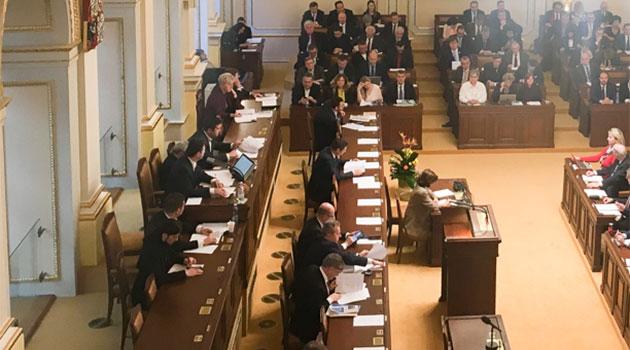Indebted minors could enjoy easier conditions for relief if Czech amendment passes

Young people in the Czech Republic who become immediately saddled with debt after reaching majority could soon enjoy easier conditions for debt relief and, just like persons living with disabilities or senior citizens, could be relieved within three years. A planned amendment to the bankruptcy law will contain the provision.
Czech MP Kateřina Valachová (Czech Social Democratic Party – ČSSD) announced the news on 2 May. There are thousands of minor debtors in the Czech Republic.
Experts on social issues and some politicians say it is immoral for children to be subjected to collections procedures for inherited debt. “We, as parties in the governing coalition, rather owe a debt to these children,” Valachová said.
“I have pre-negotiated with my colleagues that the matter of erasing children’s debts, or rather, resolving them, has support in the Chamber of Deputies,” the MP said. According to data from the Collections Agents Chamber, 5 934 children and juveniles under 18 were subjected to collections proceedings in 2017.
Of those, 3 491 children were not yet 15 years old. Most of the children subjected to collections were in the Ústecký Region, 1 359.
Last year 3 476 children were subjected to collections country-wide, 2 213 of whom were not yet 15. The highest number of minor debtors last year was recorded in the Plzeň Region, 671.
Debts for children arise most frequently because parents do not pay various fees and fines incurred by their children on time and do not respond to subsequent calls to pay them either. The fines can be for riding on public transportation without buying a ticket, back fees for garbage collection, overdue library book fines, or mobile telephone bills.
These children enter majority already in debt and according to estimates there are tens of thousands of such debtors. “Reducing this problem to the number of minors currently subjected to collections is an incorrect approach,” said Daniel Hůle, an analyst with the People In Need organization.
“We have tens of thousands of people here whose debts were incurred as minors. All that changed for them was that they turned 18,” the analyst said.
“We could just wait a couple of years until all of these people reach majority and then say this is not a problem anymore, but it is an overwhelming problem,” Hůle warned. People in Need’s campaign called “Indebted Children” advocates for amendments to the laws that will relieve children of this stress.
In addition to the planned bankruptcy amendment, four MPs from ANO, ČSSD, the Christian Democrats (KDU-ČSL) and the Pirates have already submitted a draft amendment to the Civil Code according to which the legal guardians of children age 15 and younger would automatically be liable for their debt. However, outgoing Justice Minister Jan Kněžínek (for ANO) recently said his ministry also wants to contribute a solution to this issue through a Government-proposed bill.
According to the People in Need analyst, all of the legislation currently proposed just addresses the consequences of minors assuming debt, not the causes. The Justice Ministry says it is designing a conceptual solution, continuing the work begun a couple of years ago by former Justice Minister Robert Pelikán (ANO).
That proposed change would concern the point at which minors are granted legal capacity. The legislation would establish what kinds of debts minors can legally incur as of when.
According to the former Justice Minister, in the Czech Republic an 11-year-old child is legally liable for riding on public transportation without a ticket, “including receiving a summons to pay” the fine for that infraction, a situation that is not common in other countries. “I like the German model the most,” Pelikán explained.
“There a child bears legal responsibility for nothing until the age of seven. Beginning at age seven, the child is able to take legal actions that involve only rights, not duties,” the former Justice Minister said.
“At the age of 18, legal liability begins [in Germany]. Minors need their parents’ agreement with anything and everything legal until then,” Pelikán explained.
The former Justice Minister also explained that in Germany, when parents provide children an allowance, that is considered their legal agreement to the minor spending money, but if a child incurs debt under those circumstances, the amount to be paid is never allowed to exceed the assets the child holds when he or she reaches the age of majority. Young people in Germany enter adulthood “at the most with no assets, but never in debt”, Pelikán said.
